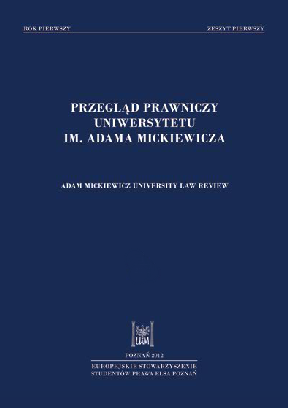Wykonywanie uprawnień przedsiębiorcy jako pokrzywdzonego w procesie karnym
Entrepreneur as an aggrieved party in criminal procedure
Author(s): Katarzyna PrelińskaSubject(s): Criminal Law, Civil Law, Penology, Law on Economics
Published by: Uniwersytet Adama Mickiewicza
Keywords: entrepreneur; aggrieved party; criminal procedure; amendment of Article 49 Code of Criminal Procedure;
Summary/Abstract: Recently, amendments to the Criminal Procedure Code have been made with unusual frequency. On 1 July 2015, the provisions which made a fundamental remodeling of the criminal procedure came into force. These included innovative regulations for the possibility of applying for compensation from the State Treasury for unjustifiable use of coercive measures, including seizure of property. Although the implementation of these provisions was consistent with the standpoint of the majority of the doctrine, they were only in force for less than ten months. In the motives of the bill, which had removed them from the Code, there was actually no justification for such actions of the legislator. Because they were in force for such a short duration, there is no possibility of assessing their functioning. Such actions of the legislator deserve the highest criticism, because there is an undeniable need to protect persons against whom coercive measures, including seizure of property, were unjustifiably applied.The author analyzes the amendment of art. 49 of the Code of Criminal Procedure and presents several aspects of rights granted by the Code of Criminal Procedure to the entrepreneur. The article contains a review of previous problematic provisions of the CCP and describes the new course of reform, which granted the status of aggrieved party to state institutions and local government institutions. The author also emphasizes the role of delivery documents to entrepreneurs as they participate in criminal procedures as an aggrieved party. According to the new art. 304b CCP, written notice of the offense determines not only the elements of the offense but also specifies the identity of the victim by entering the address for correspondence, which in the course of further proceedings allows the authorities to take further procedural steps.
Journal: Przegląd Prawniczy Uniwersytetu im. Adama Mickiewicza
- Issue Year: 2016
- Issue No: 6
- Page Range: 247-259
- Page Count: 13
- Language: Polish

